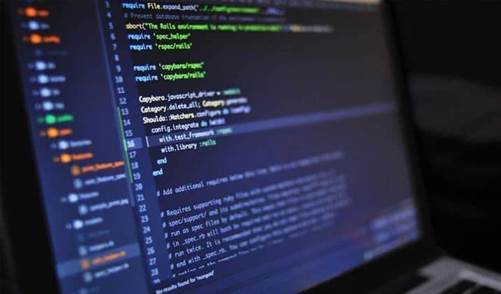Blog
Ai For Manufacturing: Boosting Productiveness And Performance
That’s how automation by way of AI-powered systems helps manufacturers determine areas of enchancment and proactively ship process enhancements and better business outcomes. In manufacturing, AI refers to using superior algorithms and machine studying strategies to automate processes, enhance effectivity, and enhance decision-making. AI in manufacturing encompasses varied functions, corresponding to predictive upkeep, quality management, supply chain optimization, and robotics integration.
By leveraging AI-based analytics, they speed up time to market by optimizing semiconductor layouts, slicing bills, and growing yields. This application demonstrates how AI supports data-driven decision-making and innovation in product development processes within the semiconductor manufacturing trade. Supply chain management is made more efficient by machine learning https://www.globalcloudteam.com/ algorithms, which estimate demand, control inventory, and simplify logistics. Robotics with AI allows automation on assembly strains, enhancing accuracy and velocity while adapting to changing manufacturing calls for. Using machine learning, producers can predict future demand and adjust inventory ranges accordingly.

Embrace the potential of producing software program like Katana to streamline your operations, improve collaboration, and achieve greater control over your manufacturing processes. With Katana as your ally, you can give attention to driving your business forward, figuring out that your operations are operating smoothly and efficiently. You can contact our team to discuss your particular requirements and goals to get started. Our staff will work intently with you to understand your manufacturing processes and establish areas the place AI can convey important improvements. We will develop a customized plan and implementation technique to combine AI into your manufacturing operations. Provide custom AI/ML solution development tailor-made to the unique needs of producing firms, specializing in the utility of AI in manufacturing processes and operations.
Custom Manufacturing Solutionscustom Manufacturing Options
AI in manufacturing has many different potential uses and benefits, similar to improved demand forecasting and lowered waste of raw supplies. AI and manufacturing have a pure relationship since industrial manufacturing settings already require folks and machines to work carefully together. AI is utilized in meeting line optimization to improve manufacturing processes’ accuracy, efficiency, and flexibility. By analyzing past performance metrics and real-time sensor knowledge, machine studying algorithms improve workflow, reduce downtime, and enable predictive maintenance. To ensure product high quality, AI-driven computer vision systems can identify flaws or anomalies. AI options for manufacturing play an important function in high quality management by analyzing sensor data in real time and detecting anomalies.
- Intelligent robots outfitted with sensors and AI algorithms can carry out complicated duties with precision and adapt to altering circumstances.
- But thanks to a combination of human know-how and synthetic intelligence, data-driven expertise — better often identified as Industry four.0 — is transforming the entire sector.
- This information depicts the promising future of AI in manufacturing and how it’s the right time for businesses to spend cash on the know-how to gain important business outcomes.
- Using AI-driven demand forecasting, Walmart ensures product availability, minimizes stockouts, and saves cash on surplus stock.
- The tech also decides if a container needs to be hooked up to a pallet, and finds the shortest route for packing containers to be disposed of.
- Using AR (augmented reality) and VR (virtual reality), producers can take a look at many models of a product earlier than beginning production with the help of AI-based product development.
AI-powered QC methods discover flaws more accurately, guaranteeing consistency within the final product. It can be used in good manufacturing to observe processes in real-time and make instant adjustments to maximise effectivity and cut back waste. In this weblog, we will delve into numerous use circumstances and examples showing how the merger of synthetic intelligence and manufacturing improves efficiency and ushers in an period of good manufacturing. We will also examine the influence of AI in the manufacturing trade and perceive the method it empowers businesses to scale.
These enhancements are ongoing and dynamic as AI repeatedly optimizes approaches primarily based on real-time operational knowledge. AI-powered robotics and automation techniques are revolutionizing manufacturing. Intelligent robots equipped with sensors and AI algorithms can carry out complex duties with precision and adapt to changing circumstances. Collaborative robots (cobots) work alongside human staff, enhancing productivity, guaranteeing safer working environments, and enabling tasks that require precision and power. Those are just some of the numerous issues plaguing the manufacturing trade.
Artificial intelligence (AI) can be utilized to manufacturing data to enhance failure prediction and upkeep planning. To notice the total impression of AI in manufacturing, you will need the support of professional synthetic intelligence growth companies. Appinventiv’s expertise in creating cutting-edge AI and ML merchandise specifically tailor-made for manufacturing businesses has positioned the corporate as a frontrunner in the industry. One impactful utility of AI and ML in manufacturing is the use of robotic course of automation (RPA) for paperwork automation. Traditionally, manufacturing operations involve a plethora of paperwork, such as purchase orders, invoices, and high quality management reviews. These manual processes are time-consuming and error-prone and can end result in delays and inefficiencies.
Streamlined Paperwork
Here’s a fast have a look at real-world examples of how AI is utilized in manufacturing. AI can either do these tasks mechanically or package deal them into user-friendly tools, which engineers can use to speed up their work. Unlock the potential of AI and ML with Simplilearn’s complete applications. Choose the best AI ML program to grasp cutting-edge technologies and propel your career ahead. This leads some business homeowners to disregard or downplay the necessity to generate a financial return on investment, among other undesirable outcomes.
Odoo is a suite of apps that combine seamlessly to optimize your entire business construction. CRM, sales, eCommerce, Timesheet, Helpdesk, Invoicing, Inventory, and Marketing Automation are simply a few of the many apps manufacturing companies can use. Numerous vendors attempt to sell their providers to companies which may be determined to leap on the development. It’s what makes searching for one of the best AI platforms for manufacturing groups and tasks so tricky. For instance, a pharmaceutical firm would possibly use an ingredient that has a short shelf life.
AI is being used by corporations like Airbus to create hundreds of part designs within the time it takes to enter a quantity of numbers into a pc. Using what’s called ‘generative design’, AI big Autodesk is able to massively cut back the time it takes for manufacturers to check new ideas. AI and generative AI deliver unparalleled innovative potential to the manufacturing industry, promising to reinvent its future. For producers to harness AI and generative AI’s super promise, the first and sometimes overlooked step is to acquire the proper of storage infrastructure. Doing so helps to make sure the final mile of AI deployment will run easily. Katana offers a complete set of options that empower producers to simply handle their inventory, manufacturing scheduling, and order fulfillment.
Ai For Predictive Upkeep
AI in high quality management enhances production efficiency and accuracy, permitting firms corresponding to Foxconn to provide high-quality items on a large scale throughout the shortly altering electronics sector. Supply chain management performs an important role in the manufacturing industry, and artificial intelligence has emerged as a recreation changer in this field. By harnessing the power of AI solutions for manufacturing, firms are revolutionizing their supply chain processes and attaining vital improvements in efficiency, accuracy, and cost-effectiveness. There’s been important buzz across the concept of the commercial metaverse over the previous couple of years.
Visual inspection tools — corresponding to machine vision cameras — is prepared to detect faults in actual time, usually more rapidly and accurately than the human eye. For example, certain machine learning algorithms detect shopping for patterns that set off manufacturers to ramp up manufacturing on a given item. This capability to foretell buying conduct helps be certain that manufacturers are producing high-demand inventory before the shops want it.

Simply put — implementing AI options comes with its justifiable share of challenges. One of the most popular functions of AI in manufacturing is predictive maintenance. Predictive maintenance is a proactive approach to equipment maintenance that uses knowledge analytics to collect machine data and interpret the data’s “story” through machine studying. Factories creating intricate products like microchips and circuit boards are making use of ‘machine vision’, which equips AI with extremely high-resolution cameras. The know-how is ready to select minute particulars and defects far more reliably than the human eye. When built-in with a cloud-based data processing framework, defects are immediately flagged and a response is routinely coordinated.
Silicon Wafers Get To The Actual Reason For Their Microchip Defects
But because of a combination of human know-how and artificial intelligence, data-driven expertise — higher generally identified as Industry 4.zero — is remodeling the complete sector. Employ machine studying algorithms to automate high quality control, leveraging the ability of AI in manufacturing for environment friendly identification of defects and deviations from product standards. AI is the perfect fit for a sector like manufacturing, which produces lots of knowledge from IoT and smart factories. Manufacturers use AI, together with machine learning (ML) and deep studying neural networks, to research this knowledge and make higher choices. AI is crucial to the concept of “Industry 4.0,” the trend toward higher automation in manufacturing settings, and the large era and transmission of data in manufacturing settings. AI and ML are important methods to make sure that organizations can unlock the value in the enormous quantities of information created by manufacturing machines.
It leverages AI algorithms to discover and generate a wide range of design potentialities for numerous merchandise and elements. This technology boosts employee productiveness by providing easy access to essential insights. Engineers can rapidly discover suitable supplies for specific merchandise, and manufacturers can use stories to foretell orders. The fusion of AI intelligence and manufacturing has caused ai solutions for manufacturing a transformative shift in industrial processes, leading to increased innovation throughout the manufacturing sector. Using AR (augmented reality) and VR (virtual reality), producers can check many fashions of a product before beginning production with the help of AI-based product growth. Besides these, IT service administration, event correlation and evaluation, efficiency analysis, anomaly identification, and causation willpower are all potential functions.
They improve the effectiveness and caliber of their manufacturing operations by using AI-driven solutions. Volkswagen analyzes sensor knowledge from the assembly line utilizing machine studying algorithms to forecast upkeep requirements and streamline operations. AI within the provide chain enables leveraging predictive analytics, optimizing inventory administration, enhancing demand forecasting, and streamlining logistics. ML algorithms can analyze historical information, identify patterns, and precisely predict demand fluctuations. For instance, an automotive parts manufacturer can use ML models to forecast demand for spare elements, allowing them to optimize stock ranges and reduce costs. General Electric (GE) is one practical instance of how synthetic intelligence adjustments factory performance optimization.
Smart factories like those operated by LG are making use of Azure Machine Learning to detect and predict defects of their machinery before issues arise. This permits for predictive maintenance that can cut down on surprising delays, which may cost tens of 1000’s of kilos. Generative AI is augmenting human-based product design efforts and serving to to accelerate innovation, enabling a virtuous cycle of market leadership via competitive benefit. AI can optimize the scheduling of producing jobs by contemplating various factors corresponding to machine availability, employee skillsets, order priorities, and production constraints.
Moreover, AI developments in the manufacturing sector are enhancing predictive high quality assurance. By analyzing historic knowledge and real-time sensor data, ML algorithms detect patterns and tendencies that will point out potential high quality issues. This permits producers to proactively handle potential defects and take corrective actions earlier than they influence the ultimate product high quality.

